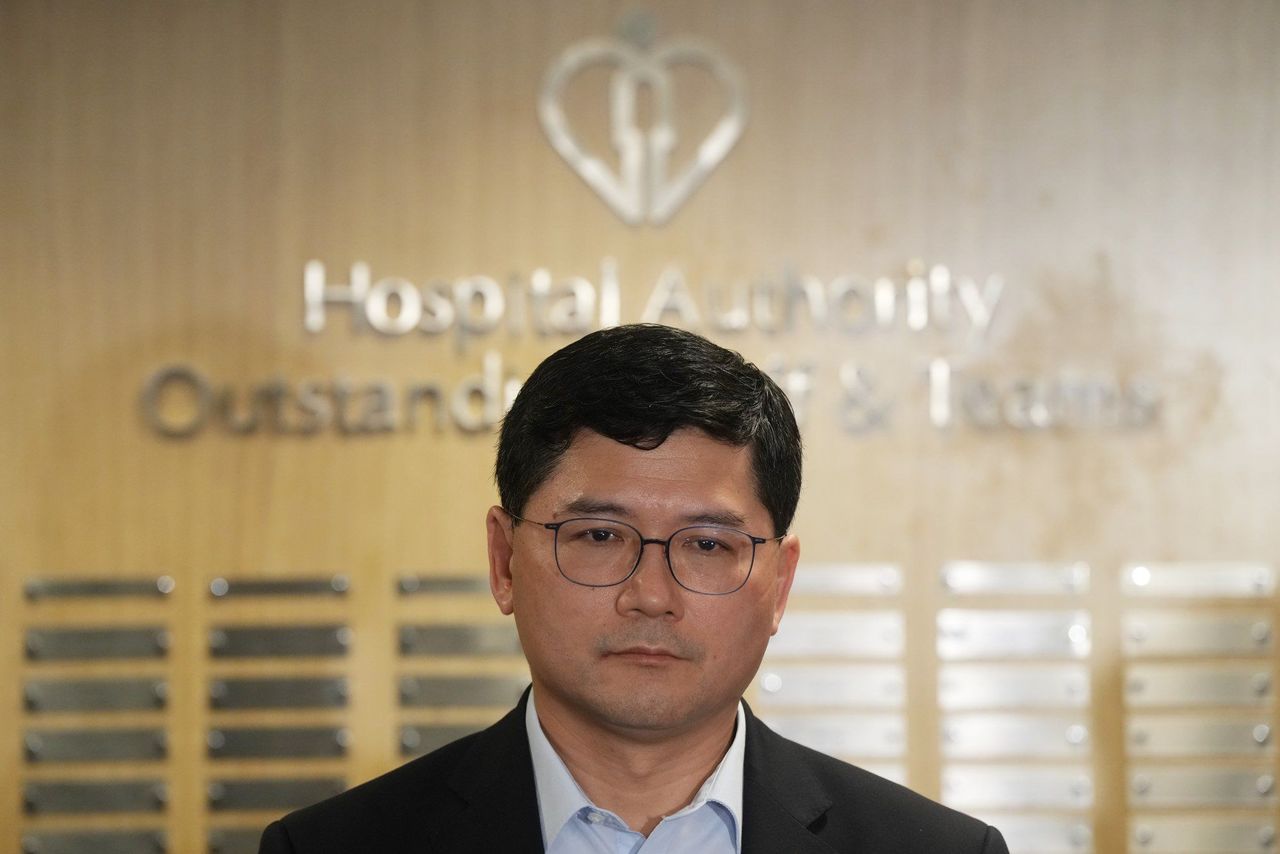Hong Kong News

Doctor drive in UK produces healthy number of recruits for Hong Kong
About 20 doctors and soon-to-graduate medical students trained in the United Kingdom are expected to start work in Hong Kong in the autumn, a development authorities said would promote the exchange of knowledge and boost professional standards.
Their recruitment was secured after Hospital Authority chief executive Tony Ko Pat-sing led a delegation to London earlier this month to lure UK-based medical students and doctors, including Hongkongers, to work in public hospitals, which are battling a severe manpower crunch.
He said more than 600 people had taken part in the face-to-face and virtual recruitment events and more than 80 per cent of them were permanent residents in the city.
The recruitment team made more than 100 conditional offers to participants at the event and about 20 of them had already accepted them, Ko added.
 Dr Tony Ko, the Hospital Authority chief executive, says a recruitment
drive in the UK attracted about 20 doctors, who are expected to start
work in the city before the end of the year.
Dr Tony Ko, the Hospital Authority chief executive, says a recruitment
drive in the UK attracted about 20 doctors, who are expected to start
work in the city before the end of the year.
“We require those who come to work in Hong Kong to provide a graduation certificate and complete their registration in the city, so it may take some time for them to arrive in Hong Kong,” Ko explained. “They may also need to arrange housing and family matters. We expect them to arrive in the third quarter.”
Ko said the authority wanted to employ more doctors who had qualified elsewhere to bolster the city’s public health services, as well as arrange more knowledge exchanges, “which is obviously very important in further improving our medical standards in Hong Kong”.
He added the authority welcomed overseas doctors to work in any speciality and, because the city had expanded its primary healthcare sector, it would be good to hire more doctors trained in Britain, where family medicine was more well-developed.
Statistics submitted by the Health Bureau to the Legislative Council last month showed the city’s public hospitals were struggling with a staff shortage as they had lost 1,247 doctors between April 2020 and the end of 2022, with only 15 per cent of them retiring.
The government in 2021 introduced a registration scheme that allowed graduates from the world’s top medical schools to work in the city without passing a licensing exam.
There are at present 75 medical qualifications from countries including the UK, the United States and Canada included in the scheme.
But the authority said the programme had only attracted 65 applications by last December, with nine receiving offers.
The authority plans to hold a recruitment event for doctors and medical students in Australia in June.
Ko said most of the recipients of offers in the UK had graduated in the last two years and were interested in working in general medicine or general surgery.
He added that they were “keen and eager” to care for the health of the people of Hong Kong.
“I am very delighted during the recruitment events … Their reactions were very positive and proactive. More than half of them expressed their interests in returning to and serving in Hong Kong,” Ko said.
He added that, apart from Hongkongers, Britons and Malaysian-Chinese who spoke fluent Cantonese had attended the recruitment events.
Ko said, after talking to medical students and doctors in London, he found that Hong Kong had the edge over other places in attracting overseas professionals.
“In some places overseas, it is not as easy to receive training opportunities. Doctors may need to queue for a long time if they want to be trained as a specialist,” he explained.
“Not everyone works in London. They may work in places which Hongkongers consider inconvenient … In Hong Kong, you can have fun in places such as Lan Kwai Fong after work, but that may not be the case overseas.”
Ko said relocation expenses, information about schools for children and accommodation would be provided to doctors who opted to move to Hong Kong.
But he said it would be difficult to give tax reductions as the authority had to ensure fair employment benefits for resident and overseas doctors.











